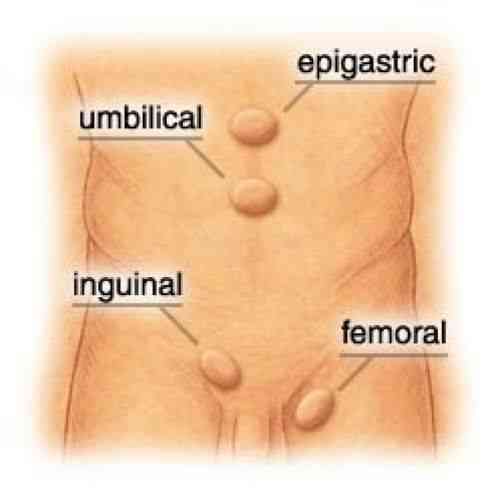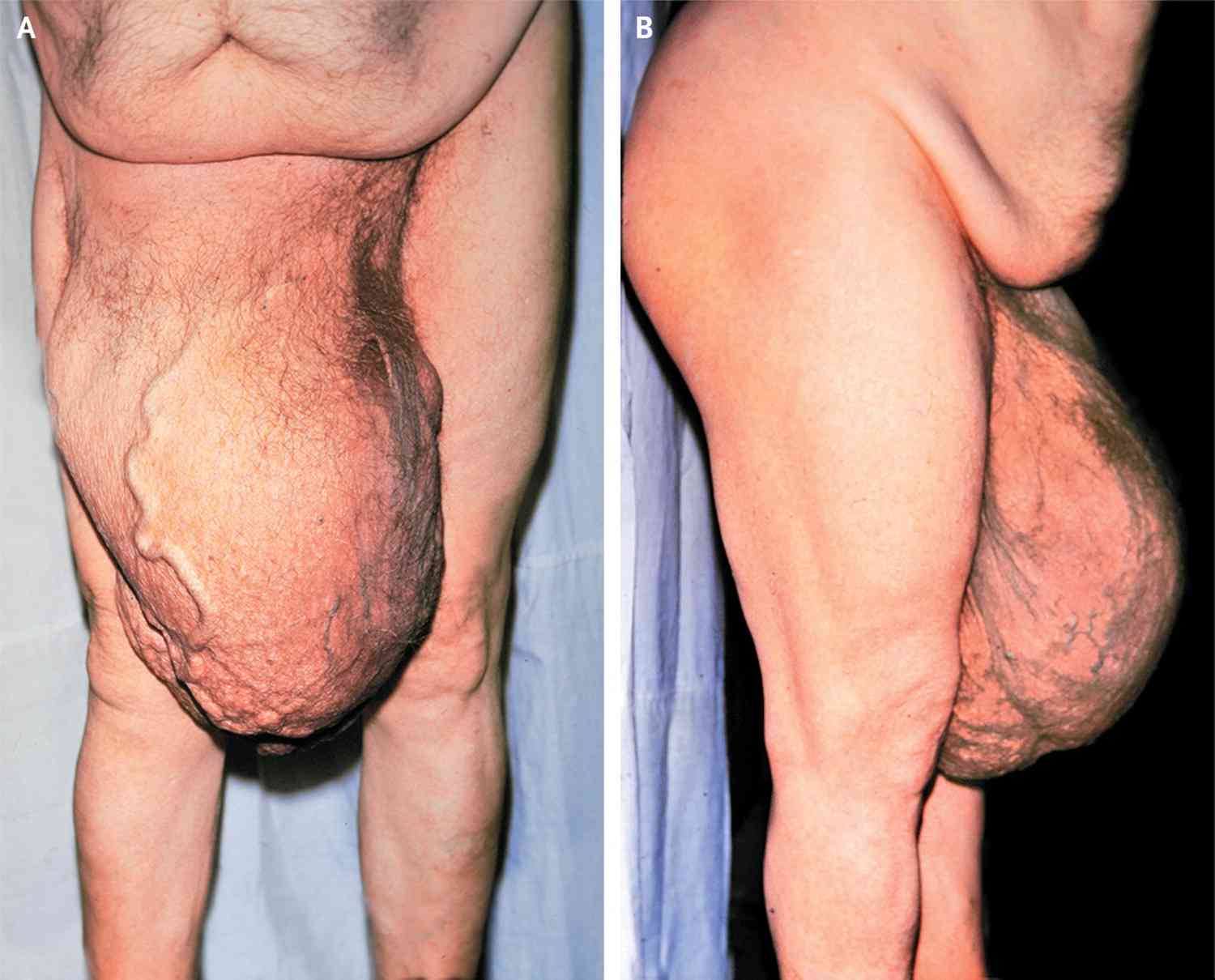Here are some examples of places hernias occur:

- In your groin, different types of hernias occur when either the intestine or bladder pushes through groin (inguinal canal) or the abdominal wall. The most common type of hernias here are called inguinal hernias.
- In the upper thigh, the intestine can push through a different space where arteries are normally carried. These are called femoral hernias.
- In your abdomen, your intestine may protrude through an area where you’ve had surgery (rendering that area relatively weak). These are called incisional hernias.
- The small intestine can protrude through the area immediately at or near your belly button. These are called umbilical hernias.
- Part of your stomach can push through an opening in your diaphragm near the end of the feeding tube (your esophagus). These is called hiatal hernias.
The ‘so-what’ of hernias is similar to other outpoutchings throughout the body. Prolapsed intestines (to use one example) can become unable to be relocated into the proper area (an irreducible or incarcerated hernia) or once trapped, it may have blood flow cut off from that part of your intestine (a strangulated hernia). This could lead to death of that tissue. Given the contents of your intestines, any such situations could lead to rupture and infection throughout your body (sepsis). Such complications are life-threatening and require immediate surgery.
Here are causes and risk factors (remember the common denominators are pressure and weakness of the affected area):
- Lifting heavy objects is a particular risk if your abdominal muscles are weak. Men are structurally weaker in the groin anyway.
- Pregnancy and obesity lead to femoral hernias and umbilical hernias (although this type is most common in newborns).
- Surgery obviously places you at risk for an incisional hernia, particularly if you’re inactive.
- Pressure within the abdomen is also increased by sneezing, coughing, diarrhea and constipation (Don’t strain!).
- Smoking, obesity and poor dietary habits also increase the risk by lessening muscle strength.
Don’t let this happen to you! I welcome any questions. Hold the comments!

Thanks for liking and following Straight, No Chaser! This public service provides a sample of what 844-SMA-TALK and http://www.SterlingMedicalAdvice.com (SMA) offers. Please share our page with your friends on WordPress. We are also on Facebook at SterlingMedicalAdvice.com and Twitter at @asksterlingmd.


